"The EU is not a Belgian company" and other European visa stories
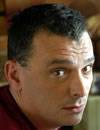 |
 |
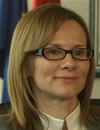 |
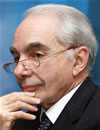 |
|
Dejan Anastasijevic |
Javier Solana |
Radmila Sekerinska | Giuliano Amato |
| Spot the non-Europeans in this group | |||
Dear friends of ESI,
In February 2004 the Serbian journalist Dejan Anastasijevic was invited to participate in a conference on EU security in Brussels. He applied for a Belgian visa in Belgrade and provided a letter of invitation by Javier Solana, the EU's High Representative:
"I was told that Mr. Solana's invitation was invalid, since he was not a citizen of Belgium, and the EU is not a Belgian company."
One year later, invited to the second part of the same conference in Spain, the question of Mr. Solana's invitation arose again:
"This time the problem was that he was not a Spanish resident. Eventually I got the visa after threatening to write a newspaper article about the issue."
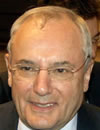 |
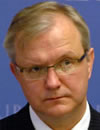 |
 |
 |
|
Jacques Barrot |
Olli Rehn |
Mirek Topolanek | Wolfgang Schauble |
| Will they tear down the Schengen wall? | |||
Strict, fair, transparent
Dejan was, and is, not alone: in coming weeks we will publish more Stories from the Balkan ghetto. Applying for a Schengen visa remains time-consuming, costly and stressful. People throughout the region perceive the visa requirement as personal rejection. They are unable to reconcile it with the offer of a future in the EU. Pro-EU reformers feel discriminated against; business people despair over the limitations that it imposes on their companies' growth potential; young people feel imprisoned.
Now, for the first time in two decades, there is real hope that this situation will actually change. In 2008, the EU formulated a series of concrete and demanding requirements in detailed "visa roadmaps." It promised that visa-free travel is the reward for meeting these benchmarks.
We want to contribute to making sure this EU-led process is merit-based. This is also the key message of the declaration jointly made by the Schengen White List Project advisory board, chaired by former Italian Prime Minister and Interior Minister Giuliano Amato, and by ESI:
"The EU's conditions are demanding. To meet them requires money and effort. But their fulfillment will make the whole of Europe, not just the Western Balkans, safer. Having well-secured borders, regulated asylum procedures, forgery-proof passports and police structures able to cooperate with law enforcement agencies throughout Europe is a good in itself. It is cooperation, not exclusion, which works best in fighting organised crime and illegal migration."
ESI also believes that this requires that the process be transparent. The citizens of Albania, Bosnia and Herzegovina, Macedonia, Montenegro and Serbia have to know what has been asked of their governments in order to hold them accountable for progress (or lack thereof). The European public deserves to know about the far-reaching reforms that the countries are undertaking in order to keep the EU safe. For this reason, we have collected relevant documents and put them online. They include the roadmaps, reports on activities and achievements sent by Western Balkan governments to the European Commission, and the Commission's assessments.
ESI is grateful to the Robert Bosch Stiftung, which has made this project possible.
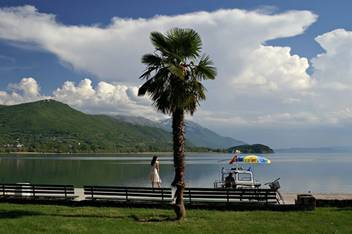 |
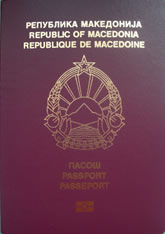 |
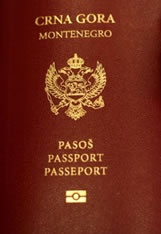 |
|
Ohrid, Macedonia |
biometric design in Macedonia and Montenegro |
|
Macedonia and European principles
There will be an early test of the EU's commitment to the principle of "strict but fair". In all assessments undertaken until now Macedonia is judged to be the front runner. Recently Czech Prime Minister Mirek Topolanek visited Macedonia and stated that "Macedonia has fulfilled all conditions for visa liberalisation, but if there is a problem, it is political in nature."
As ESI Senior Analyst Alexandra Stiglmayer explains in a detailed look at EU internal procedures, it will require an effort on the part of the EU to ensure that even those countries (such as Macedonia) which meet the requirements set out in the benchmarks will be put on the Schengen White list in the course of 2009. Failure to do so would, however, risk undermining the credibility of the merit-based process.
As Macedonian Deputy Prime Minister Ivica Bocevski told ESI in an interview:
"Macedonia – a country of 2 million citizens – is not a threat, by any means, to the security and the migration policy of the Union. In addition, Macedonia is at the bottom of the list of states with asylum seekers."
"'Mr. Gorbachev, tear down this wall!'", US president Ronald Reagan told the Soviet leader in 1987, signalling the collapse of communism and the end of divisions in Europe. It is now my turn to use this line. Europe, tear down the Schengen wall for our citizens!"
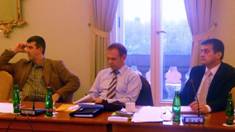 |
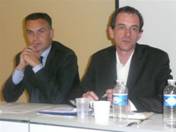 |
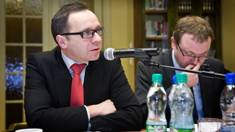 |
|
Prague |
Paris |
Warsaw |
European enlargement debates
What does the Czech political elite (the current EU presidency) think about future enlargement? Who in Poland (EU presidency 2011) is interested in the Balkans and Turkey? What does Sweden expect to be able to do for enlargement during its presidency in the second half of 2009? And who are the enlargement sceptics among the French elite in Paris?
In order to explore these questions ESI has organised a series of conferences and presentations in the past 2 years for leading policy makers and journalists from South East Europe. This has taken us to Vienna, Berlin, Rome and Paris; most recently we went to Prague and Warsaw.
In order to better understand the debate on the future of enlargement ESI has also undertaken detailed research, which we want to share with interested policy makers, journalists and civil society actors.
You can now find background analysis and ESI manuals on enlargement debates in the Czech Republic, in France and in Poland on our website. We hope these will help raise the profile of this debate so vital to the future of the European continent.

Gerald Knaus
